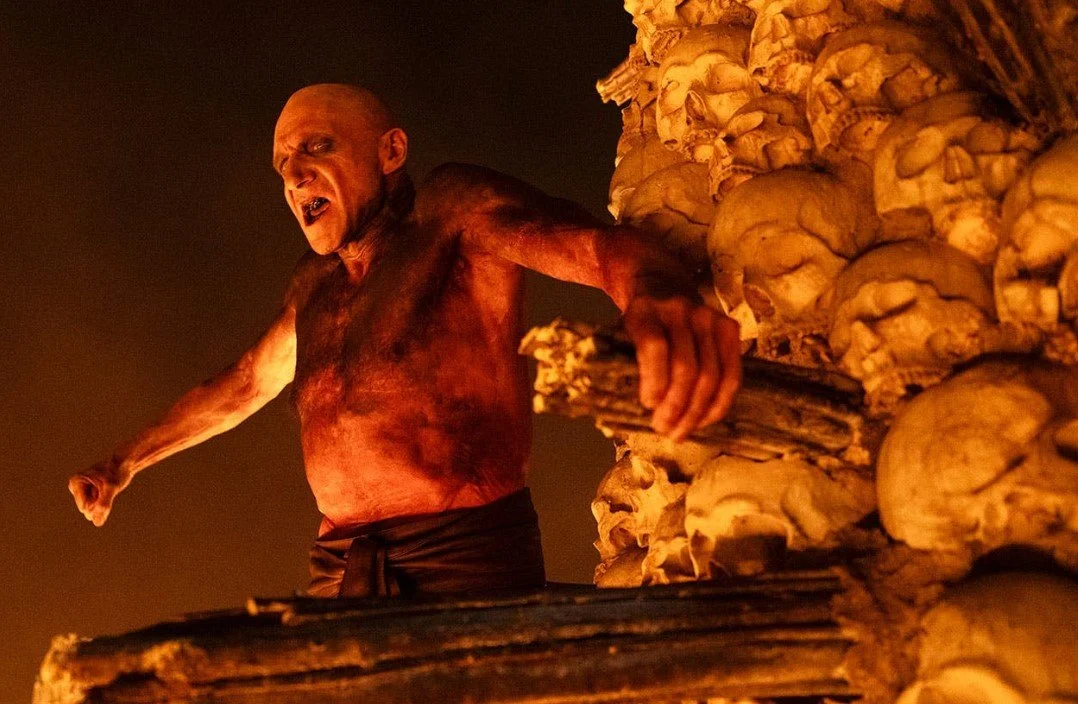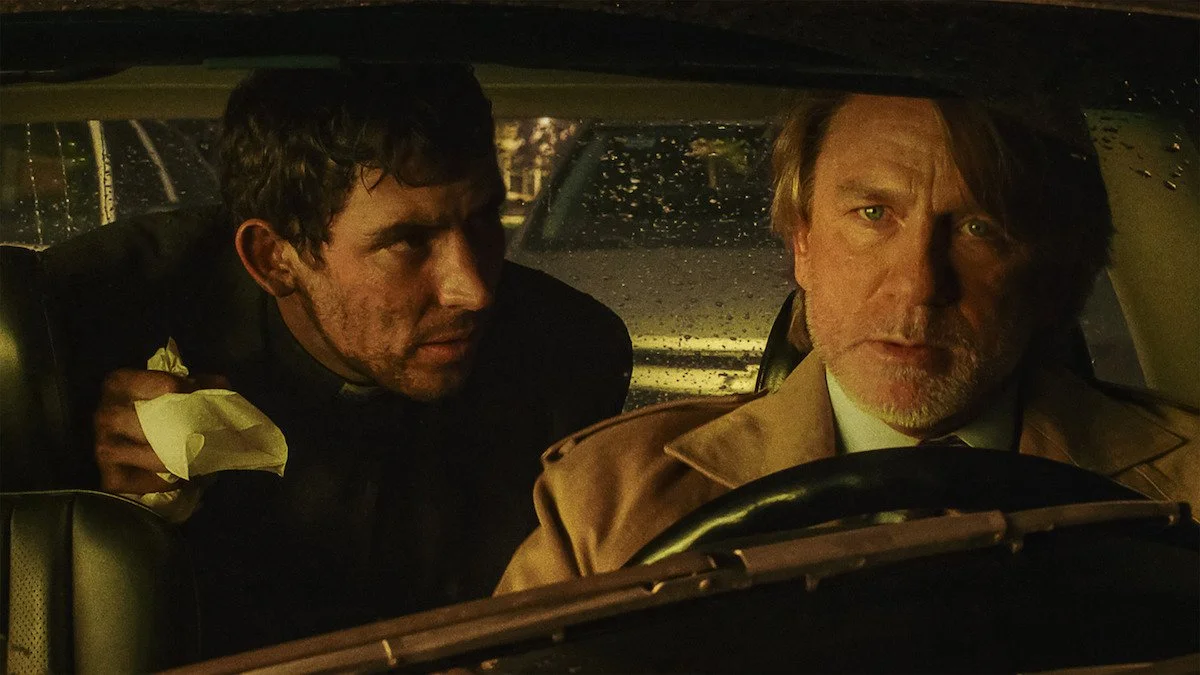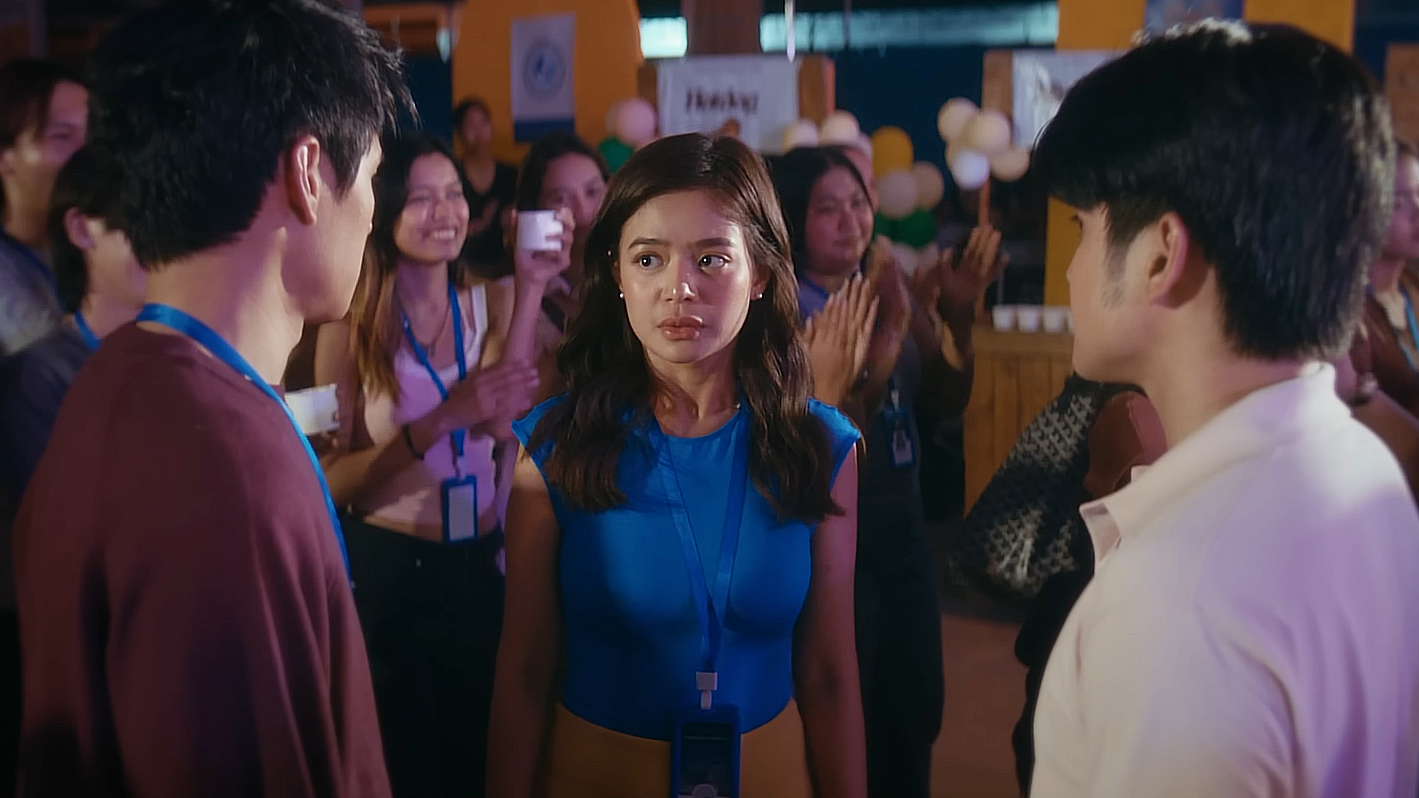SINEGANG.ph's Best Films of 2023
SINEGANG.ph’s Best Films of 2023
Feature art by Abigail Manaluz
2023 was a great year for movies. Scratch that, it was a truly great year for movies. In fact, the SINEGANG.ph staff seriously debated whether we should expand the number of films here to 25 or 30. There was just simply too much to name, and even if we tried, we knew that we would still be missing out on a lot of gems.
The limelight of the year undeniably belonged to international cinema, as France, Japan, Vietnam, Mexico, and even, the Philippines, produced a wealth of films poised to etch their names on not just year-end accolades but potentially on the decade's definitive lists. Simultaneously, there was a palpable rejection of the tried-and-tested superhero formula. This year's top earners, while still tethered to intellectual properties, navigated uncharted waters, offering fresh interpretations on genres that seldom outshine their Marvel and DC competition.
The streaming landscape faced a substantial decline, eclipsed by the resurgent allure of cinemas, notably propelled by the Barbenheimer phenomenon. Moreover, festivals witnessed an unprecedented revival, with Sundance, Cannes, Venice, Toronto, and even local gems like Cinemalaya and QCinema enjoying increased visibility and unwavering support from both global studios and independent artists, providing robust platforms for minority filmmakers.
SINEGANG.ph’s best films of 2023 list represents a huge diversity of films from all mediums; whether it be animation, documentary, or short films. From the profound humanism of Hirokazu Kore-eda’s Monster, to the uncanny campiness of Todd Haynes’ May December, here are the best films of 2023, in alphabetical order:
Honorable Mentions:
Abutan man tayo ng houselights (dir. Apa Agbayani)
Bottoms (dir. Emma Seligman)
Godzilla Minus One (dir. Takashi Yamazaki)
Hito (dir. Stephen Lopez)
The Taste of Things (dir. Trần Anh Hùng)
Third World Romance (dir. Dwein Baltazar)
Thomas Schubert, Paula Beer, Langston Uibel, and Enno Trebs in Afire.
Afire
Dir. Christian Petzold
Climate violence in film often recedes into the background so much so that it strips it of its urgency and sunder. What Afire does differently is point a mirror at humanity, showing our self-absorption and superfluous antics in the face of disruptions to our idyllic seas and summertime forests. Thomas Schubert gives my favorite performance of the year as he provides an absorbing look into a protagonist so frustratingly dense you almost feel bad for him, leading to both comedic and tragic effect. It's not an indictment of the cynicism that befalls humanity’s indifference; it's a reminder that there are far bigger things to worry about that escape our selfish bubbles. In its final act, be prepared to be swept off your feet by a harrowing tone shift.
If you liked this, you may also like: Evil Does Not Exist (2023, dir. Ryusuke Hamaguchi).
— Ryan Oquiza
The inciting incident that flanks Sandra Hüller’s character in Anatomy of a Fall.
Anatomy of a Fall
Dir. Justine Triet
Justine Triet’s Palme d’Or winning film concerns whether or not Sandra, a famous novelist, is guilty of murdering her husband. The tagline of the film, “Did she do it?,” portends a mea culpa that’ll give us a sense of satisfaction we’re so used to getting in legal battles. But this isn’t a drama set in the battlefield of law where objectivity reigns and answers are far more conclusive—it’s an exercise in futility. An attempt to create an anatomy from which we lack bodies or flesh to build upon. In the process of watching the film, we are drawn not into the act of violence against flesh, but rather the creation of it. Finding out who Sandra (the wife) is, who Daniel (the son) is, and who Samuel (the deceased husband) was. I recommend you to get to know them as soon as you can.
If you liked this, you may also like: A Separation (2011, dir. Asghar Farhadi).
— Ryan Oquiza
Jamie (Gabby Padilla) and Makoto (Ken Yamamura) outside a party in Gitling.
Gitling
Dir. Jopy Arnaldo
"Everyone deserves someone who understands their own language." Taking home the Best Screenplay award both in Cinemalaya and QCinema, Jopy Arnaldo's script deals with connections that need barriers to be broken first in order to be fully intimate with someone. The barrier in question is language, and with these barriers conquered, they create this world of their own that is just fascinating to watch as their friendship blossoms. An unforgettable bond that would linger in your mind even as the film ends.
Read our full review: ‘Gitling’ REVIEW: Breaking barriers through language
If you liked this, you may also like: Drive My Car (2021, dir. Ryusuke Hamaguchi).
— Abigail Manaluz
Le Phong Vu in Inside the Yellow Cocoon Shell.
Inside the Yellow Cocoon Shell
Dir. Pham Thiên Ân
Pham Thiên Ân's incredible debut film is an excellent addition to the collection of slow cinema, and for a film about faith and questioning, I think it’s quite ingenious to use the medium of slow cinema to convey its concepts as the two echo each other in a way that you have to be willing to embrace and devote yourself to it. Inside the Yellow Cocoon Shell offers some of the most complex and beautifully orchestrated images, all while maintaining a strong degree of simplicity and elegance. Simultaneously hypnotic and enthralling, it's a film that renders quite a unique experience, one that offers some wisdom and contemplation in silence.
Read our full review: Inside the Yellow Cocoon Shell ‘REVIEW’: On Devoting Oneself to Faith and Slow Cinema
If you liked this, you may also like: Kaili Blues (2015, dir. Bi Gan).
— Ryan Capili
Carlo Aquino and Dolly de Leon rotoscoped in Iti Mapukpukaw.
Iti Mapukpukaw
Dir. Carl Joseph Papa
As an animated feature that switches between rotoscope and hand-drawn animation, Carl Joseph Papa’s Iti Mapukpukaw is a highly-successful experiment. But made even more impressive are the reasons why Papa and his team utilize these varying styles to tell its thematically harrowing narrative about trauma and abuse in loosely-connected vignettes of alien abductions and dead uncles that slowly intertwine. To reveal the film’s secrets is to rob it of its emotional potency, so let’s just say that where the film leads up to turns this impressive technical achievement into one hell of a storytelling accomplishment that shows the healing power of human empathy and understanding in helping the repressed find their voice once again.
If you liked this, you may also like: Mysterious Skin (2004, dir. Gregg Araki).
— Justin Caunan
JaNae Collins, Lily Gladstone, Cara Jade Myers, and Jillian Dion in a scene from Killers of the Flowers Moon.
Killers of the Flower Moon
Dir. Martin Scorsese
A modern classic from one of our great living filmmakers. An astounding modernization of Scorsese’s ‘70s American New Wave roots, channeling the same moral pathos that has defined his oeuvre while adding in some touches that, dare I say, straight-up feel like they could come from an Apichatpong Weerasethakul film. Leonardo DiCaprio delivers a performance that stands as one of the pinnacles of his career. However, his brilliance doesn't overshadow Lily Gladstone's piercing sorrowfulness or Robert DeNiro's unsettling embodiment of malevolence camouflaged within the banalities of evil. It’s a snapshot of America’s endless failures to indigenous people and the original sin that birthed its opulence. But what elevates it is Scorsese’s candid admission that, as a filmmaker marked by his own limited experiences, his role is a storyteller, an old sage paying tribute to the dead and unearthing the humanity lost to decades of injustice and inequality.
If you liked this, you may also like: Silence (2016, dir. Martin Scorsese).
— Ryan Oquiza
Natalie Portman and Julianne Moore in May December.
May December
Dir. Todd Haynes
Empathy and exploitation blend in this latest offering from Todd Haynes. Inspired by the infamous '90s scandal involving an American teacher and her sixth-grade student, May December taps into our obsession with true crime stories and scandalous journalism through campy melodrama that is deeply layered and reveals nuances not immediately evident upon first viewing. It features two prestigious Hollywood actresses delivering their usual brilliant performances, but the film truly belongs to the up-and-coming Charles Melton who delivers a heartbreakingly impressive performance portraying an adult frozen in his adolescent years due to traumatic experiences inflicted by his predatory wife. A sad tale that creeps up on you even after the credits roll, this is yet another finest work in Todd Haynes’ filmography.
If you liked this, you may also like: Notes on a Scandal (2006, dir. Richard Eyre).
— Linus Masandag
Eita Nagayama (right) in Monster.
Monster
Dir. Hirokazu Kore-eda
Despite how detestable and frustrating people can be, there is a reason why they act the way they do, and Hirokazu Kore-eda understands that immensely. With its title, his latest feature misleads audiences into thinking that a monster among the crowd will answer for all the troubles caused for everyone. However, it slowly reveals that the world is too large and complex that pinning blame on an individual for the series of unfortunate incidents that happened is not as certain as it may seem. And as much as Kore-eda has grown adept in finding humanity in morally grey characters and directing powerful performances even from child actors, with the late Ryuichi Sakamoto befittingly accompanying the unfolding drama with one poignant piano piece after another, it's Yuji Sakamoto’s multifaceted screenplay that has proven to be the film’s ultimate strength with its changing perspectives that illuminates us further to the ugly and complicated truth.
If you like this, you may also like: Nobody Knows (2004, dir. Hirokazu Kore-eda).
— Justin Caunan
A still from Miko Revereza’s Nowhere Near.
Nowhere Near
Dir. Miko Revereza
A culmination of years of filming, cutting, and reflection—Miko Revereza’s Nowhere Near is a meditation on the history of his family that is so deeply bound by the complex web of colonial past in the Philippines. Diaristic and guerilla in its approach, Revereza’s film bears testament to his decades of life living in the United States undocumented and his years of tracing back his family’s roots in an attempt for emancipation, all while showing how colonialism erases people, lineages, and histories. A potent memoir about the fear of statelessness and colonial trauma.
Read our full review: ‘Nowhere Near’ REVIEW: Traces of Home in a Foreign Land
If you liked this, you may also like: News from Home (1976, dir. Chantal Akerman).
— Ryan Capili
The Trinity Test scene from Oppenheimer’s perspective.
Oppenheimer
Dir. Christopher Nolan
Even after months removed from its release, we still can’t stop talking about Christopher Nolan’s monumental three-hour epic. Famous for his morally complex and dilemma-fueled characters, J. Robert Oppenheimer’s story and Christopher Nolan’s storytelling sensibilities were practically a match made in heaven. Pair that with a star-studded cast, a juggernaut film frame with Hoyte Van Hoytema’s expert IMAX 70mm cinematography, and the most complete and riveting performance by Cillian Murphy, it’s no surprise this film made almost a billion dollars. It also has the most jaw-dropping and awe-inspiring moment of the year with its climactic Trinity Test scene—that kinda helps.
If you liked this, you may also like: The Trial (1962, dir. Orson Welles).
— Ryan Oquiza
Greta Lee and Teo Yoo in Past Lives.
Past Lives
Dir. Celine Song
A low-budget film from a first-time director, held by the triadic gravitas of an actress best known for supporting roles, a relatively unknown actor from the other side of the world, and an unconventional “villain” from a tender and underrated actor. By all accounts, Past Lives is an unlikely film about the unlikeliest simplicity of love made under the most unlikeliest of circumstances. Armed with a single camera and a scarce number of Kodak 35mm film rolls, director Celine Song marches towards New York to mine personal heartaches, imbuing each scene with a sense of fleetingness, of time being stolen with every second Hae-sung and Nora muse about fate and reincarnation. It’s the film I related to the most this year as a U.S. immigrant myself, reminding me of the shards of my past self I've uprooted at the cost of my identity.
If you liked this, you may also like: What Do We See When We Look at the Sky? (2021, dir. Alexandre Koberidze).
— Ryan Oquiza
Koji Yakusho (left) and Arisa Nakano (right) in Perfect Days.
Perfect Days
Dir. Wim Wenders
With a film that finds itself in endless cycles, where each day only differs barely from the last, it’s easy to feel confused when the film doesn’t seem like it is building up to anything grand. But it is this same sense of simple repetition that reveals a film so comfortable in the mundane; expertly crafted to invite the audience to smile, to love, and to embrace the everyday world through city janitor Hirayama’s eyes (topped with cassettes of Lou Reed, Patti Smith, and the Rolling Stones).
If you liked this, you may also like: Paterson (2016, dir. Jim Jarmusch).
— Jay Cruz
Emma Stone and Mark Ruffalo in Poor Things.
Poor Things
Dir. Yorgos Lanthimos
Lanthimos finally reaches the zenith of his artistic credo: combining the absurdist entrapment of Dogtooth (2009) with the Frankensteinian bombast of old Hollywood. Emma Stone continues to be one of the most entertaining and versatile actresses to watch, veering on absolute movie star status. The comedic chops of Mark Ruffalo and Willem Dafoe have also never been better, making the film’s weighty philosophical conundrums about gender, mind, and body an easy pill to swallow. With a production design that is both extravagantly obtuse and visually enchanting, accompanied by an irreverent direction that takes audacious turns, Poor Things is unpredictably delightful and contemplative.
If you liked this, you may also like: Belle de Jour (1967, dir. Luis Buñuel).
— Ryan Oquiza
Miles Morales (voiced by Shameik Moore) in Spider-Man: Across the Spider-Verse
Spider-Man: Across the Spider-Verse
Dir. Joaquim Dos Santos, Kemp Powers, Justin K. Thompson
A lot has already been said about Across the Spider-Verse’s troubled production that involves poor working conditions, but there is no denying the fact that the film remains a stunning product of over a thousand animators whose passion, blood, sweat and tears ooze from every dazzling frame. In many ways, it’s a staggering improvement over its already-groundbreaking predecessor. But what surprises me the most is that despite the overuse of the multiverse idea in today's media, the story's handling of it remains fresh and exciting, proving that there is still juice to the concept—and it’s largely due to its character-driven nature. For every “WHAM!”, “BOOM!” and “BLAM!” moment, the film takes a natural pause to breathe in the characters’ current internal dilemmas and personal relationships, and as a result, it makes the stakes higher, and the characters more well-drawn than before.
If you liked this, you may also like: Paprika (2006) dir. Satoshi Kon
— Justin Caunan
A still from the short film Tumatawa, Umiiyak.
Tumatawa, Umiiyak
Dir. Che Tagyamon
"Naalala mo ba kung kailan mo unang naramdaman kung gaano ka kaliit?"
Directed by Che Tagyamon, this QCinema Special Jury Prize-winning short film explores the thoughts of a child living in a world where everything seems to grow bigger and bigger while one continually grows smaller and smaller. It's a personal essay on grief and loss as he reminisces about his memories shared with his grandfather during their visits to the city, which then transforms into a much deeper and thought-provoking exploration of certain socio-economic issues. In just eight minutes, Tagyamon harnesses the power of minimalist hand-drawn animation and contrasting images to depict a child's innocent recollection of memories, all while presenting us with these realizations that his young mind couldn't yet comprehend—specifically, the struggles of the marginalized urban poor and the significant devaluation they face due to classism and urbanism.
If you liked this, you may also like: The Florida Project (2017, dir. Sean Baker).
— Linus Masandag
Click here to see the complete list on Letterboxd.

































